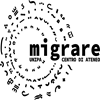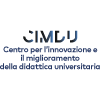Energy
The Energy Section Coordinator is prof. Rosario Miceli; it has 59 teachers and 8 Scientific- Disciplinar Sectors:
The Energy branch develops research activities on the topic of energy, thus allowing to operate in different research areas, often characterized by a multidisciplinary approach aimed to the study and development of new energy models, technologies and energy systems.
The research topics are mostly part of high interest research programs on a national and international level (Horizon 2020, PO FESR 2014-2020, etc.) where the energy themes are recognized as a core factor in the achievement of the energy efficiency and sustainable development objectives agreed upon on the international level.
ING-IND/10 Industrial applications of Energetics, Thermodynamics and Heat Transfer, studies the principles and applications of applied physics, applied thermodynamics, applied thermal fluid dynamics and heat transfer. Specific skills are in the fields of thermodynamic analysis of energy processes and their environmental impact, energetics, conversion, management and use of energy sources and carriers, exploitation of renewable and fossil energy sources, thermoeconomics, heat transfer, applied thermal fluid dynamics, thermal systems, refrigeration and air-conditioning systems, control devices for thermal and cooling systems, thermophysical properties of materials.
ING-IND/11 – Building physics and building energy systems, studies the fundamentals and applications of building physics and building energy systems in the fields of civil and building engineer, architecture, energy planning and industrial design. The most relevant topics of research in this field are based on the fundamental of thermodynamics, thermo-fluid dynamics, heat exchanges, lighting and acoustics, as well as rational use of energy, use of renewable energy sources and the management techniques of energy services in buildings and in the urban contexts.
ING-IND/19 - Nuclear Plant, encompasses theoretical, experimental and computational studies on thermo-fluid dynamics, thermo-mechanical and neutronic problems related to the design, management and safety analysis of fission and fusion nuclear reactors; irradiation facilities; nuclear fuel enrichment, fabrication and re-processing techniques; plant decommissioning; nuclear waste treatment and disposal.
ING-IND/20 - Nuclear measurements and instrumentation, concerns the design, construction and use of instrumentation, methods and techniques for the detection of nuclear radiations generated by natural and artificial radionuclides or by nuclear reactions used in various application fields. Therefore, topics of interest regard instrumentation and measurements for nuclear plants, applications of radioisotopes in the industrial and other fields, detection of environmental radioactivity, safety and protection from radiation, design and implementation of innovative nuclear measurement systems.
ING-IND/31 – Electrical Engineering, carries out research on the theoretical and experimental aspects of electromagnetic fields and circuits, and their applications to engineering. Areas of interest include the physical foundations of phenomena, the models that represent them, their theoretical, numerical and experimental methods, the development and verification of design and identification procedures. They mainly relate to electromagnetic fields and coupled problems; electromagnetic characterization of materials on nano, micro and macro scale; electromagnetic compatibility; modelling and synthesis of devices and systems of interest to engineering; inverse problems; circuits and algorithms based on artificial intelligence techniques; electrical aspects of energy.
ING/IND-32 Electrical convertors, machines and switches is directed towards the analysis, the design, the characterization, the experimental validation and the integration of electrical machines, electrical sensors and actuators, power electronics, electrical drives and electrical/electronic materials for several applications, such as industry, energy production and transmission, electric or hybrid mobility and civil and commercial buildings.
ING-IND/33 – Electric Power Systems possesses all technical and scientific competences necessary for conceiving, designing, carrying out, characterizing, testing and analysing, both in steady-state and in dynamic regime, components and systems using modern technologies for the production, transmission, distribution and utilization of electric energy. The spectrum of the considered applications extends to all systems of interconnected components using energetically-significant electrical vectors. In particular, to this context topics belong such as safety and security, automation, reliability, energy efficiency, fault diagnosis, grid planning, electric system operation and management, EMC, power quality, high voltage techniques, all issues related to electricity market, renewable energy sources and distributed generation, electric system materials engineering, on-board electric assemblies, power systems for electric transportation and all special electric installations, ranging from building automation to the most sophisticated computer-based systems.
ING-INF/07 – Electrical and Electronic Measurements, studies topics related to: metrology, measurement methods and instrumentation, sensors and transducers, measurements for quality and process management, measurements for components and systems characterization, measurements for information society, industry, humans, environment and cultural heritage. The main research areas concern the evolution and integration of modern measurement and communication technologies for smart grids and smart cities, energy efficiency, electric mobility, renewable sources.
The activities of the Energy Branch mostly develop in the fields of applied research, towards applications and aimed at the technological transfer, with a more limited focus on base research. The Energy Branch promotes research activities and the development of research groups in strategic and innovative fields, as well as agreements with public and private entities and bodies, to share specific competencies and to acquire fundings useful to develop research activities. Furthermore, the Energy Branch promotes and performs research activities based on specific agreements, on behalf of third parties, technological transfer on behalf of enterprises, industries on a national and international level, developing and transferring knowledge, capacity, competencies and innovations developed within the branch.
ING-IND/10 – Industrial applications of Energetics, Thermodynamics and Heat Transfer
ING-IND/11 – Building Physics and Building Energy Systems
ING-IND/19 – Nuclear Engineering
ING-IND/20 – Nuclear Measurements and Instruments
ING-IND/31 – Electrical Engineering
ING-IND/32 – Electrical convertors, Machines and Switches
ING-IND/33 – Electric Power Systems
ING-INF/07 – Electrical and Electronic Measurements
Keywords: Energy, research, building physics and building energy systems, electrotechnics, electrical systems and measures.

















